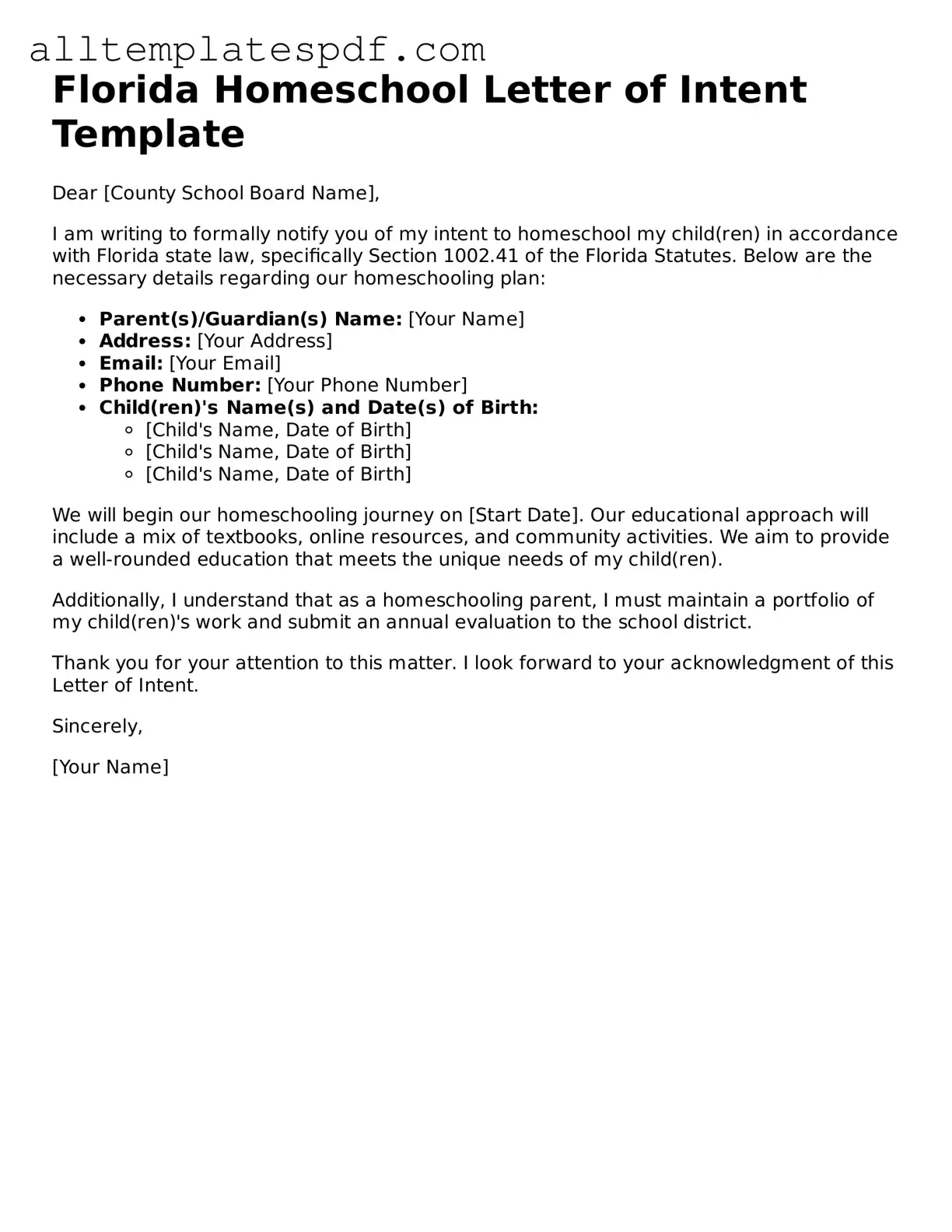Blank Homeschool Letter of Intent Template for the State of Florida
The Florida Homeschool Letter of Intent form is a crucial document that parents must submit to officially notify the state of their decision to homeschool their children. This form serves as a formal declaration, ensuring compliance with Florida's educational regulations. To begin your homeschooling journey, fill out the form by clicking the button below.
Open Editor

Blank Homeschool Letter of Intent Template for the State of Florida
Open Editor
Fast and easy form completion
Complete Homeschool Letter of Intent digitally — fast and easy.
Open Editor
or
↓ Homeschool Letter of Intent PDF Form
